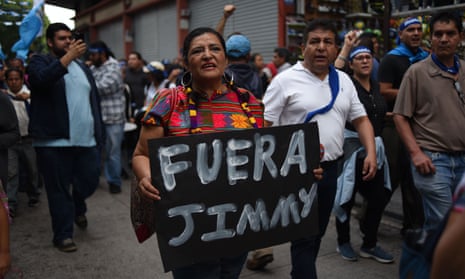Guatemala’s government has defied a ruling by the country’s top court to allow the return of the man who heads a UN-backed anti-corruption commission, with officials arguing they have the right to force his replacement.
The announcement came after the constitutional court issued a unanimous and binding ruling late on Sunday that the administration must permit entry by the leader of the commission, which has pursued a number of high-profile graft probes, including one against President Jimmy Morales himself.
Government officials said the ruling does not mention commission head Iván Velásquez by name, and simply refers to the “commissioner (of either gender)” of the UN anti-corruption body, known as CICIG. They said that means they only have to allow someone in to head the commission but not Velásquez.
However, Gloria Porras, one of the court’s five justices, told the Associated Press that the ruling applies to Velásquez.
“Iván Velásquez is the current commissioner and as such can enter the country immediately,” Porras said.
Morales announced in late August that he was ending the commission’s mandate. He said he would allow the body a year to wrap up its work, but he wants Velásquez replaced immediately.
At a news conference Monday, the interior minister Enrique Degenhart, was categorical, saying that “Colombian citizen Iván Velásquez will not enter the country”.
The foreign minister, Sandra Jovel, said she had sent a diplomatic letter to the UN asking that it send a list of proposed replacements within 48 hours. She said Guatemala’s government will have to sign off on whoever replaces Velásquez.
The UN defended CICIG and its commissioner, saying the body has played “a pivotal role in the fight against impunity in Guatemala”.
The commission’s corruption probes have helped put former presidents and other officials behind bars. The body and Guatemalan prosecutors recently asked for a third time that Morales be stripped of his immunity so he could be investigated for alleged campaign finance violations. A legislative vote would be required to do that.
Morales denies wrongdoing, but critics have seen his effort to wind down CICIG and bar Velásquez as a manoeuver to protect himself as well as relatives and associates also in the sights of investigators.
Among the investigations that the commission has brought was one that led to the resignation and jailing of former president Otto Pérez Molina and his vice-president. Others have ensnared dozens of politicians, public officials and businesspeople.
